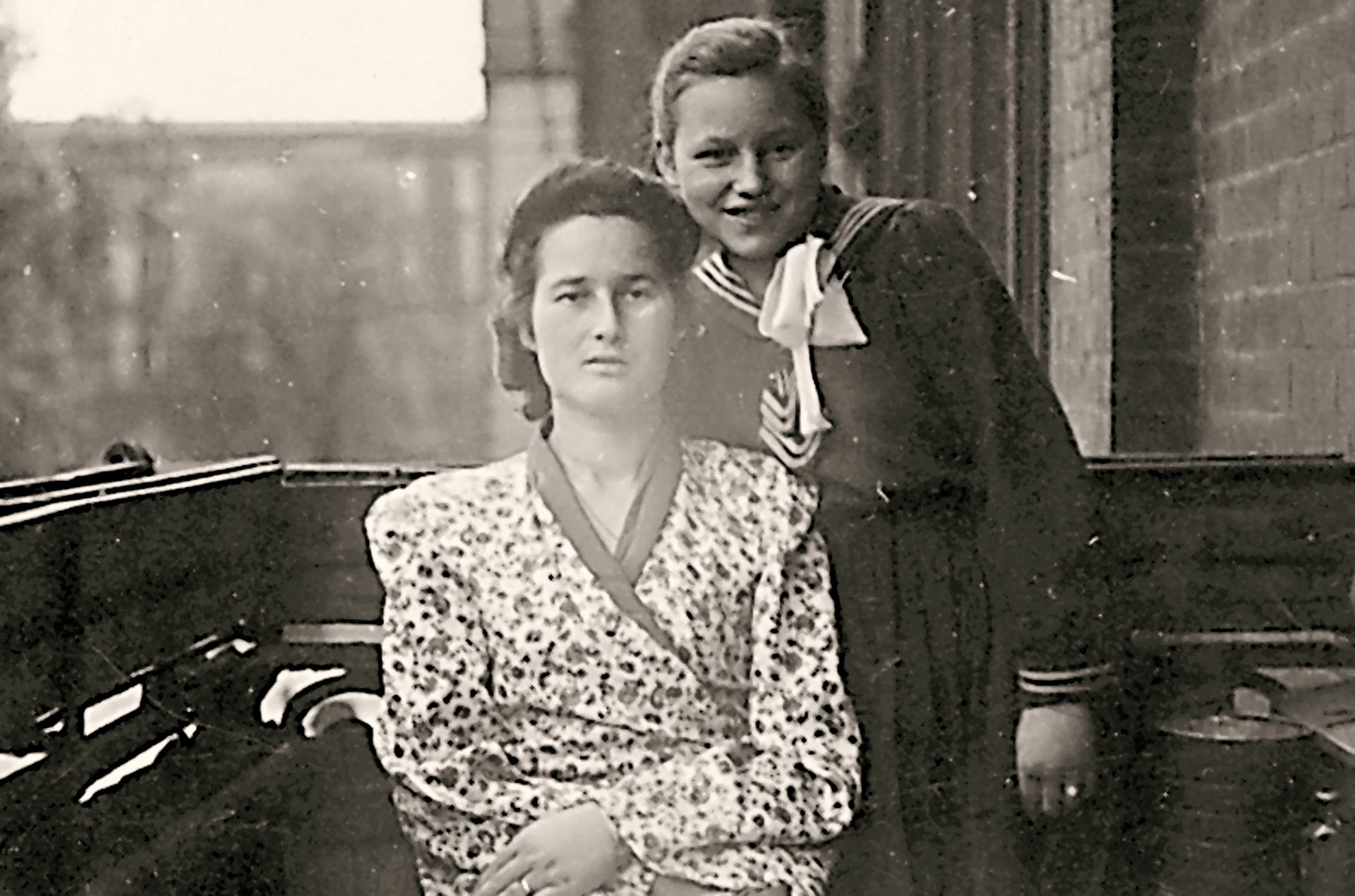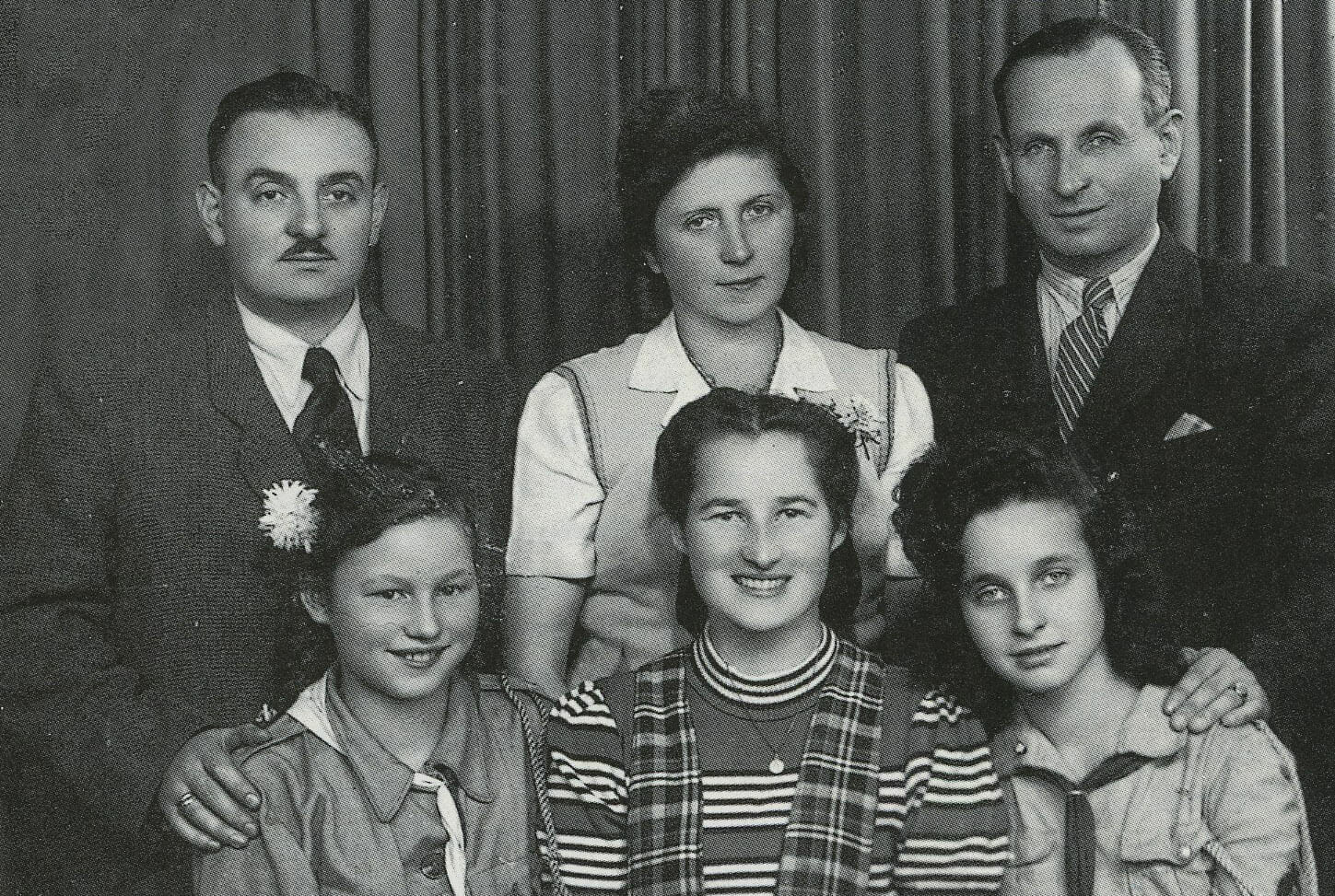
Stefania Podgorska Burzminski with Helena in Poland just after WWII
Photograph courtesy Burzminski family archives
Confronted by evil at a young age, two sisters demonstrate a rare maturity and determination
Dr. Lynn Domina
March 28, 2019
[Jesus] entered a certain village, where a woman named Martha welcomed him into her home. She had a sister named Mary, who sat at the Lord’s feet and listened to what he was saying. But Martha was distracted by her many tasks; so she came to him and asked, “Lord, do you not care that my sister has left me to do all the work by myself? Tell her then to help me.” But the Lord answered her, “Martha, Martha, you are worried and distracted by many things; there is need of only one thing. Mary has chosen the better part, which will not be taken away from her.”—Luke 10:38-42
When Poland was invaded by the Nazis early in World War II, Stefania Podgórska was only fourteen years old, while her sister, Helena, was ten years younger. Their father had died in 1938, and their mother and brother were conscripted as forced laborers for the Nazis. Stefania worked as a clerk in a grocery store owned by a Jewish family until they were removed to a Jewish ghetto. As the Holocaust became increasingly terrifying, the two girls harbored thirteen Jewish people in the attic of their apartment, including Stefania’s former employers and their family and friends, who had escaped from the ghetto as they were about to be deported to concentration camps. All of these people survived the war. The Podgórska sisters were forced to think and act quickly at a young age, yet they demonstrated a rare maturity and determination.
One way of reading the story of Martha and Mary from Luke’s Gospel is that contemplation is preferable to action. Another way of reading it is that some circumstances call for contemplation, for listening, for stillness; others call for active response. We don’t always have the opportunity Mary had, to sit and listen to Jesus; sometimes we must do the work that Martha took on. But if we have made a practice of listening for God, we can assure ourselves that when the time comes for action, we will be guided toward the right choice. The Podgórska sisters made the right, though dangerous, choice, but they wouldn’t have had such courage if they hadn’t already thought about ethics and justice.
God of relationship,
we know that you are with us
each day. Help us to remember
your presence. Remove our distractions
so that we may rest in you,
in contemplation and in action. Guide us
toward compassion and courage
for the protection
of our sisters and brothers,
our friends and neighbors,
and the strangers in our midst.

Stefania and Helena Podgórska (1925–;1935–) were sisters in a large Polish family. The family was Catholic. In 1939, a year after the death of their father, Stefania (also known as Fusia) moved with another sister from Lila, Poland to Przemysl, where she worked in a grocery store owned by the Diamants, a Jewish family. In 1941, the Germans occupied Przemysl, forcing all Jews into a ghetto, and Stefania and Helena’s mother and brother were sent into forced labor in Germany. As a result, Stefania cared for Helena for the duration of the war. When rumors reached them that local Jews would be killed, the Podgórska sisters hid thirteen Jewish people in their home. All of them survived the war. In 1961, Stefania moved to the United States and married Josef Diamant, whose family had owned the grocery store in Poland. They had two children. Helena remained in Poland and become a physician. In 1979, Yad Vashem, Israel’s holocaust memorial, recognized the two sisters as among the Righteous Among the Nations, and Stefania participated in the opening of the United States Holocaust Memorial Museum. Some of the Jewish people who were hidden by the Podgórska sisters were reunited with them in 1995. Stefania currently lives in California, while Helena continues to live in Poland.
Lynn Domina, MDiv, PhD, is head of the English Department at Northern Michigan University. She is a writer, teacher, traveler, and author and editor of several books. Her articles have appeared in publications such as The Christian Century, Christianity & Literature, and Poetry Daily. Excerpted from Devotions from HERstory: 31 Days with Women of Faith by Lynn Domina, copyright © 2019 by Judson Press. Used by permission of Judson Press.

